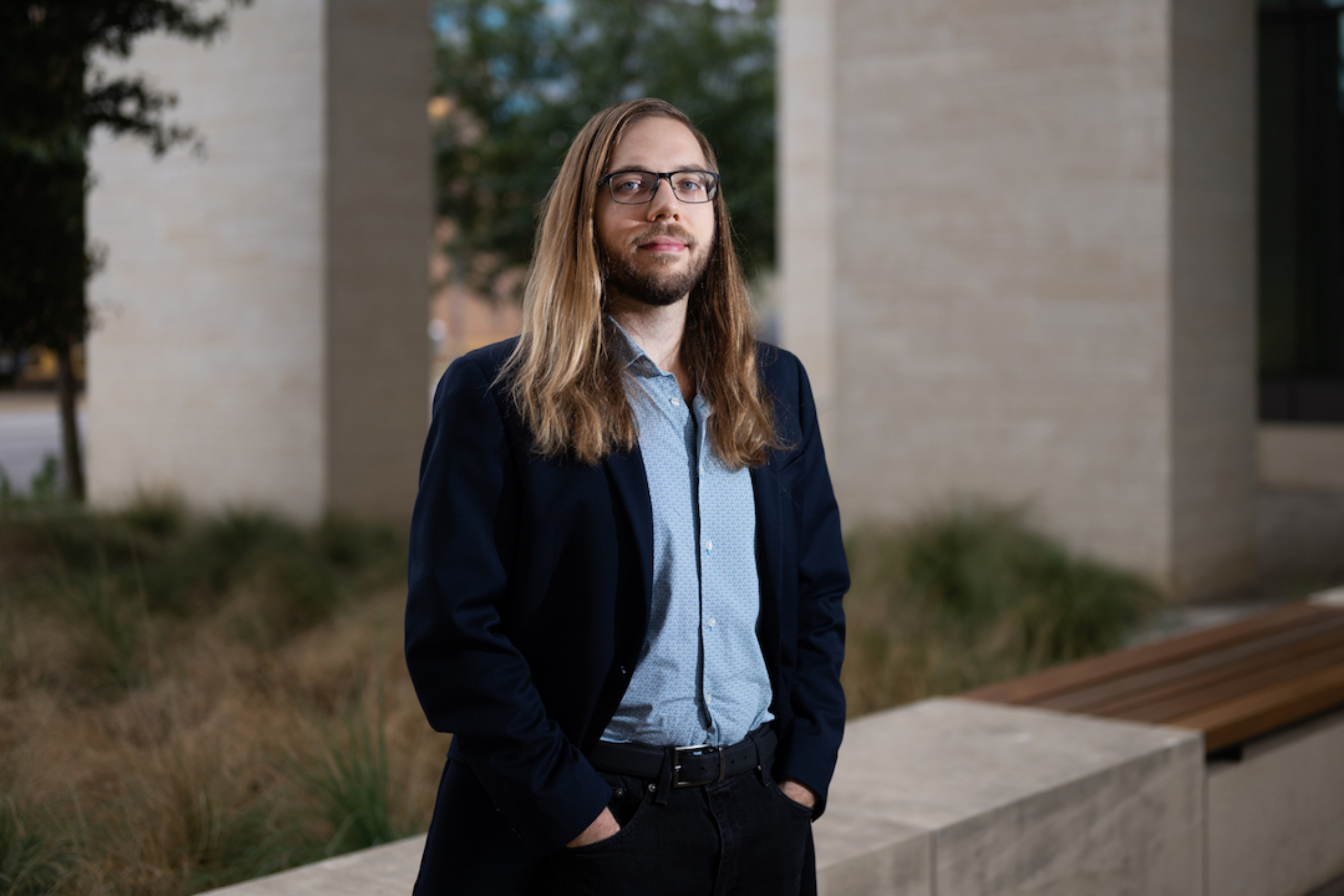Greg Muller, Ph.D., is an expert in helping people face their fears, and he’s taking that expertise global.
From helping launch the Adult Psychiatry Clinic at UT Health Austin to training local psychiatry residents, along with supporting research on the effects of psychedelics, Muller — an assistant professor in Dell Med’s Department of Psychiatry and Behavioral Sciences — is investing in the Austin community while also making strides in assisting international colleagues in conflict zones to care for their patients experiencing trauma.

Greg Muller, Ph.D.
What’s the focus of your work, and how are you currently applying it?
During my education and training at the University of Florida, I first began developing a unique expertise in exposure-response prevention for obsessive-compulsive disorder and anxiety-related disorders. Exposure-response prevention can be thought of as the science of how to confront your fears, overcome them and develop your capacity for bravery. It’s one of the coolest things I’ve ever discovered, and I still love this work over 10 years later.
My most recent and notable work includes a collaboration on a five-year, National Institutes of Health-funded project that aims to build research capacity in Ukraine to help professionals there implement trauma care after the ongoing mass violence. Learners in this program receive significant training in pharmacotherapy, prolonged exposure therapy and behavioral activation — all evidence-based methods for treating PTSD. The long-term goal will be to help strengthen the Ukrainian psychiatric system. We also hope to work toward establishing a professional society of Ukrainian mental health researchers that has active collaborations within Ukraine and around the globe. This project is headed by Dr. Israel Liberzon and Dr. Tetiana Nickelsen at Texas A&M’s Department of Psychiatry.
In October 2023, this included a trip to Lviv, Ukraine, for the launch of our first workshop. I was selected for this project based on my expertise in adapting principles of exposure therapy across many populations and conditions, and I’ll continue to work as a training supervisor for our Ukrainian colleagues and assist with future workshops.
What have been your top takeaways from working in an area that’s in active conflict?
My clinical expertise is all about confronting your fears. Traveling to Ukraine despite the ongoing conflict was a necessary personal challenge that pushed me out of my comfort zone and into uncertainty. It was one of the best professional opportunities I’ve had so far, and I was extremely grateful for the chance to make an immediate, positive impact in the lives of others.
During my trip, I was continuously impressed by the courage, commitment, character and professionalism of my Ukrainian colleagues. They willingly committed over 50 hours of their lives to participate in this training experience; this does not include travel time, which can involve significant delays. They accomplished this while also balancing the responsibilities of work and family. Many learners I spoke with returned immediately to a full workweek following this experience. Others face the significant burden of internal displacement as a result of the ongoing conflict and/or the responsibility of active military service. This dedication speaks to the highest level of commitment to their profession and a sincere desire to provide high-fidelity, evidence-based care to the people they serve.
Describe a singular memory that has shaped how you approach your life or work.
I made a decision in my early undergraduate training to switch from an engineering track to major in psychology. This was a significant change, and I faced serious uncertainty about my future. I had enrolled in an Abnormal Psychology course out of curiosity and to learn more about my new major. Opening our textbook, there was a quote from Clifford Beers. He established the first U.S. outpatient mental health clinic and worked to reform behavioral health care.
The quote read, “A pen rather than a lance has been my weapon of offense and defense; for with its point I have felt sure that I should one day prick the civic conscience into a compassionate activity, and thus bring into a neglected field earnest men and women who should act as champions for those afflicted thousands least able to fight for themselves.”
I knew then that I had made the right decision; that quote still touches me. It’s at the heart of the mission and mindset that I bring to health care — to provide exceptional patient care, assist with the training and mentoring of fellow professionals, work to reduce suffering and cultivate joy, and contribute to the growth of this noble profession.